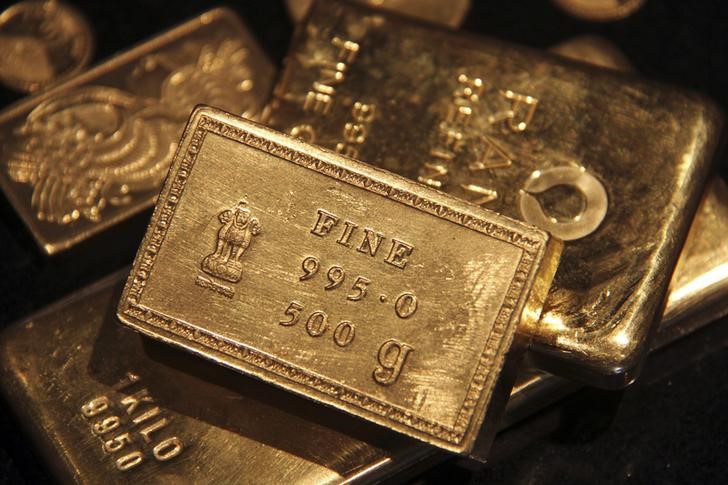By Barani Krishnan
Investing.com -- With another strong U.S. inflation print seen in two days, the dollar flew to a fresh two-decade high on Monday, knocking gold a few rungs lower from its mid-$1,700 perch.
Gold futures for August delivery on New York’s Comex settled down $10.60, or 0.6%, at $1,731.70 an ounce, extending last week’s 3.3% drop — its fourth in a row since the week ended June 10. Last week’s tumble was also its sharpest since the week ended May 6.
Gold’s slide came as the Dollar Index, which pits the U.S. currency against six other majors, plucked a new high above 108 since Oct 2002.
The dollar itself surged amid signs that the June print for the US Consumer Price Index, due on Wednesday, will show little retreat in inflation, with economists expecting an annual reading of 8.8% versus the 8.6% reported for May. The Federal Reserve’s own tolerance for inflation is a mere 2% a year and it has vowed to raise interest rates as much as necessary to achieve that.
Inflation itself should be positive for gold, given the yellow metal’s long-touted standing as a hedge against price pressures and one of the best stores of value. But the dollar’s rally on the back of rate hikes has helped the greenback steal the “safe-haven” crown from gold.
Rate hikes are anathema to gold. Markets are preparing for the odds of the Fed imposing non-stop rate hikes of 75 basis points this month and the next three if the CPI does not retreat as quickly enough as the central bank expects by the year-end.
“Inflation is playing tug-of-war with gold and the precious metal is trying to hold the line. A hot inflation report on Wednesday will cement aggressive Fed rate hike expectations for later this month and drive up expectations for September’s meeting,” said Ed Moya, analyst at online trading platform OANDA.
“With Wall Street focused on (whether) the Fed will send this economy into a recession, King Dollar will likely remain the trade and that is a difficult environment for gold,” Moya added.
Fed expectations for its July 27th rate decision will be cemented after the CPI report, and signals from Wall Street banks on whether the U.S. consumer and the economy were weakening faster than most earnings estimates are implying.
As though on cue, the New York Fed said on Monday that more than half of the consumers it surveyed for this month declared that their household financial situation had deteriorated from a year ago and nearly half expect it to worsen in 2023.
